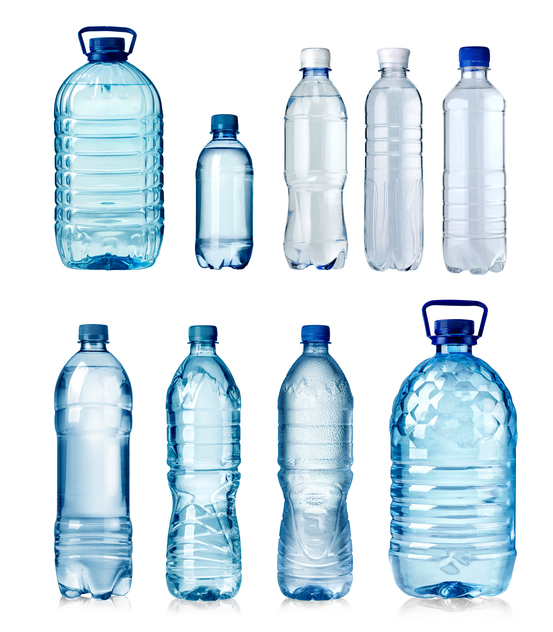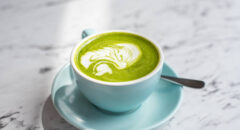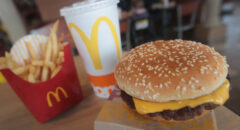
Bottled water is past just being popular, it's a way of life now. Most people don't trust regular water that comes out the tap. Nowadays, the majority of people usually consume water that is either filtered in some way or bottled. With bottled water, many of us buy it in packs or in bulk, which raises questions about how long it should last. The FDA (Food and Drug Administration) reports that bottled waters have an unclear shelf life, especially if it is produced according to regulations & remains unopened. Hence, the expiration dates on water bottles are voluntary, & might reflect odor and taste rather safety. Because of this reason, you will possibly not find “sell by”, “best by” or “use by” dates on the bottle. But can the water inside go bad? The answer is yes.
Although many of us don't have fancy machines or detectors at home, you can use your “senses” as a reliable way to find out if the water is bad. Here are some common characteristics of contaminated or impure water:
- Odd taste
- Strange smell and
- Cloudiness
If you experience any of these, you might as well just toss it out and get another bottle. It's better to pay an extra dollar or two now, than medical expenses later.
Here is a general rule of thumb for most kinds of bottled water:
UNOPENED Distilled Bottled Water lasts - 2+ Years (pantry), 2+ Years (refrigerated)
UNOPENED Flavored Water lasts for 9 Months (pantry), 9 Months (refrigerated)
UNOPENED Vitamin Water lasts for 9 Months 9 Months
UNOPENED Sparkling Water lasts for 1+ Years 1+ Years
UNOPENED Coconut Water lasts for weeks to a couple of months depends on packaging & preservatives (pantry), 1 Year (refrigerated)
OPEN Bottled Water lasts for 2-3 Hours (pantry) 3-5 Days (refrigerator)
OPEN Vitamin Water last 2 hours (pantry), 3-5 days (refrigerator)
OPEN Sparking Water lasts for 2-3 Hours (pantry) 2-3 Days (refrigerator)
OPEN Coconut Water lasts for 2 Hours (pantry) 24-48 Hours (refrigerator)
According to Eat By Date, freezing bottled water for consumption is not recommended because of the chemicals contained in the bottle. Freezing and boiling temperatures break down the chemicals in plastic bottles which can then leak into the liquid. You can freeze and re-freeze them (but NOT sparkling water) for use in a cooler or ice chest - but do not drink them when thawed (see further notes below). Of course, all food and drink products last for a shorter period of time if they are not stored properly. But remember, unlike a lot of other drinks, it does not usually have a sell-by date because water has an indefinite expiration date. According to Arrowhead Water (a leading bottler of Springwater), their bottles have a 2-year shelf life and the best before date recommended for best taste is located directly after the letters "BB".

How to tell if Water is bad, rotten or spoiled?
Practicing proper hygiene and food safety techniques will help prevent foodborne illness.
Although not a perfect test, your senses are usually the most reliable instruments to tell if your water has gone bad. Some common traits of contaminated water are cloudiness and a strange taste or smell. But, it is often your sense of taste that can tell the difference - which by the time it reaches that sense, all you can do is spit it out! If there is a chemical taste to your bottled water, it is not healthy (see below).
There are, of course, certain health risks associated with spoiled drinks so always remember to practice food safety and enjoy your drinks before their shelf life has expired!
How to store Water to extend its shelf life?
Store water in a cool dark place away from cleaning products, gasoline, paint thinner and other toxic or odorous materials. This is especially true now that bottles have become greener (new lighter & thinner material).
Popular materials include PET plastic, high-density polyethylene, and polycarbonate plastics. Glass and aluminum cans are other varieties though less common. Chances are the bottled water you drink is in a PET plastic bottle that’s 100% recyclable
You can help water stay fresh longer by storing it in your refrigerator immediately after use.
Never leave bottled water in direct sunlight or even inside your car all day on a hot sunny day. Chemicals from the plastic container will heat and leak into the water. Drinking these bottles...
... that have been left in the sun have been directly linked to breast cancer in women and studies now show links to other types of cancer in both men and women.
When choosing your bottled water, always look for water that has gone through distillation, reverse osmosis, or is filtered with an absolute 1-micron filter.
As an added precaution, you could check for reliable manufacturers of bottled water who are more likely to follow best practices. While the FDA and the Environmental Protection Agency (EPA) do not actually certify bottled water, you can check for certification from the International Bottled Water Association (IBWA) or NSF International. Both of these organizations keep a routine check on the quality of bottled water.








